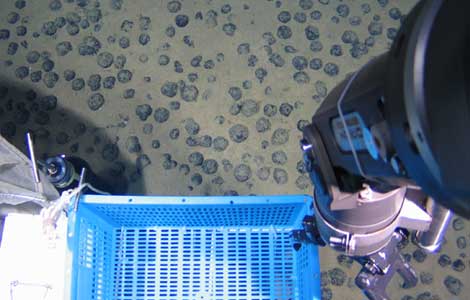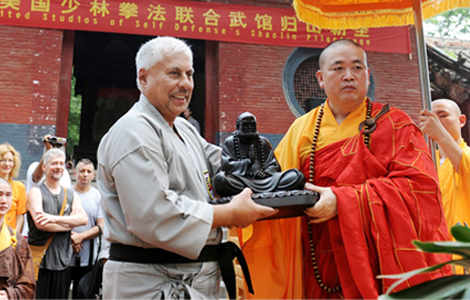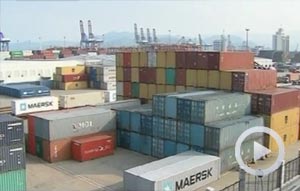Gaze returns home in search for growth
Updated: 2013-07-05 07:05
By Wang Xin in Hangzhou, Zhejiang (China Daily)
|
||||||||
|
CEOs at a roundtable discussion. |
Facing the pressure in the international market due to rising costs and fluctuations in foreign exchange, a growing number of Chinese IT companies have turned their eyes back to their home turf.
At the ChinaSourcing Summit, representatives of top Chinese IT service providers coincidentally chose "smart city" as a prescription for their development in the domestic market.
Shang-Ling Jui, executive vice-president and chief technology officer at Pactera, compared a smart city to the human nervous system.
It includes various sensors such cameras, barcodes and high-tech facilities, which he likened to nerve cells to collect information.
Then comes the Internet backed by telecom technologies to transfer the information for sorting, screening and analysis. Finally the processed data will be used in various fields including transportation, healthcare and education.
"All these provide directions for the IT industry to explore," Jui said.
Smart cities will promote the growth of a wide range of industries, from designing a chip in a sensor to telecommunications and the Internet of Things, the management of everyday appliances and devices using computers, he said.
He suggested learning from Germany and bringing big data and cloud computing technologies to factories, especially in the Pearl River and Yangtze River Delta regions, China's production hub, in a bid to improve efficiency in the manufacturing sector.
Y. Eric Mou, senior vice-president of iSoftStone Information, said more than half of his company's clients were from abroad just three or four years ago.
Yet now the roles have switched as China has become a focus. He said his company's "accumulated experience of building a smart city piece by piece enables us to provide an end-to-end service chain and play a major part".
The Taiwan-born executive was enthusiastic about the opportunities on the Chinese mainland. "If I were not here, I'd have missed the fast-growth decade."
Zhong Mingbo, executive president of Insigma Technology, said his company's business in China can also be summarized by the smart city concept as it mainly provides system integration and solutions for governments and companies involved in infrastructure construction.
Urbanization, industrialization and agro-modernization have spurred rocketing growth of the market and at the same time, new technologies have also brought revolutions in the IT sector, both providing historic opportunities to the industry, Zhong said.
"Insigma's fast growth for the next three years will rely on the domestic market, yet improvements in our competency needs the expertise learned abroad," he said.
Challenges overseas
Service contracts outsourced to Chinese providers increased 39.3 percent to $27.87 billion in the first five months of this year, said Wan Lianpo, deputy director-general of the Ministry of Commerce's department of trade in service and commercial services.
Offshore deals were worth $19.74 billion, up 43.4 percent year-on-year, with the United States the source of clients, accounting for more than one quarter.
The other major regions were the European Union, Hong Kong and Japan.
The central government will continue policy support to the service outsourcing sector, extending tax favors to the end of 2018, Wan said.
Consultants' opinions
"Proximity to the buyer, by really taking care of their needs, is something Chinese companies can do much better than they do today," said Frank J.H. Ridder, research vice-president of IT sourcing at Gartner.
To "sharpen the value position" of service providers, the Germany-based analyst noted the importance of having a better understanding of different needs in targeted markets.
He cited Europe as an example, where "the network of mid-size companies is much more scattered."
One shortcut is to find local partners as a jumpstart, he said. "Otherwise it'd be a tough, long-term game."
His colleague Helen Huntley said "China is still perceived as a cheap location for resources".
"But you are more than that."
wangxin@chinadaily.com.cn
(China Daily USA 07/05/2013 page14)

 Chinese fleet arrives in Vladivostok for drills
Chinese fleet arrives in Vladivostok for drills
 Joey Chestnut wins 7th contest with 69 dogs
Joey Chestnut wins 7th contest with 69 dogs
 Lisicki, Bartoli to vie for new Wimbledon crown
Lisicki, Bartoli to vie for new Wimbledon crown
 Muscle Beach Independence Day
Muscle Beach Independence Day
 Tough workout for Li Na in war of words
Tough workout for Li Na in war of words
 Submersible taps mineral deposits in S China Sea
Submersible taps mineral deposits in S China Sea
 Ecuador finds spy mic for Assange meeting
Ecuador finds spy mic for Assange meeting
 US martial artists arrive at Shaolin Temple
US martial artists arrive at Shaolin Temple
Most Viewed
Editor's Picks

|

|

|

|

|

|
Today's Top News
Mandela on life support, faces 'impending death'
Missouri govt's veto won't stop Smithfield deal
ROK to discuss Kaesong normalization with DPRK
Gunman shoots two, commits suicide in Texas
Baby formula probe to shake or reshape industry?
Passenger detained over bomb hoax in NE China
High rent to bite foreign firms in China
Egypt's prosecution imposes travel ban on Morsi
US Weekly

|

|







